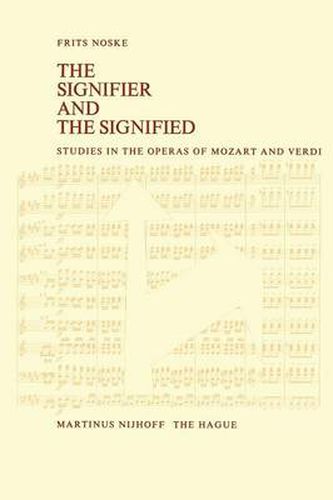Readings Newsletter
Become a Readings Member to make your shopping experience even easier.
Sign in or sign up for free!
You’re not far away from qualifying for FREE standard shipping within Australia
You’ve qualified for FREE standard shipping within Australia
The cart is loading…






This title is printed to order. This book may have been self-published. If so, we cannot guarantee the quality of the content. In the main most books will have gone through the editing process however some may not. We therefore suggest that you be aware of this before ordering this book. If in doubt check either the author or publisher’s details as we are unable to accept any returns unless they are faulty. Please contact us if you have any questions.
The studies collected in this volume deal with the interpretation of opera. In most cases the results are based on structural analysis, a concept which may require some clarification in this context. During the past de cade ‘structure’ and ‘structural’ have become particularly fashionable terms lacking exact denotation and used for the most divergent purposes. As employed here, structural analysis is concerned with such concepts as ‘relationship’, ‘coherence’ and ‘continuity’, more or less in contrast to formal analysis which deals with measurable material. In other words, I have analysed the structure of an opera by seeking and examining factors in the musico-dramatic process, whereas analysts of form are generally preoccupied with the study of elements contained in the musical object. Though admittedly artificial, the dichotomy of form and structure may elucidate the present situation with regard to the study of opera. Today, nearly one hundred years after the death of Wagner, the proclaimed anti thesis of Oper und Drama is generally taken for what it really was: a means to propagate the philosophy of its inventor. The conception of opera (whether ‘continuous’ or composed of ‘numbers’) as a special form of drama is no longer contested. Nevertheless musical scholarship has failed to draw the consequences from this view and few scholars realize the need to study general theory of drama and more specifically the dramatic experience.
$9.00 standard shipping within Australia
FREE standard shipping within Australia for orders over $100.00
Express & International shipping calculated at checkout
This title is printed to order. This book may have been self-published. If so, we cannot guarantee the quality of the content. In the main most books will have gone through the editing process however some may not. We therefore suggest that you be aware of this before ordering this book. If in doubt check either the author or publisher’s details as we are unable to accept any returns unless they are faulty. Please contact us if you have any questions.
The studies collected in this volume deal with the interpretation of opera. In most cases the results are based on structural analysis, a concept which may require some clarification in this context. During the past de cade ‘structure’ and ‘structural’ have become particularly fashionable terms lacking exact denotation and used for the most divergent purposes. As employed here, structural analysis is concerned with such concepts as ‘relationship’, ‘coherence’ and ‘continuity’, more or less in contrast to formal analysis which deals with measurable material. In other words, I have analysed the structure of an opera by seeking and examining factors in the musico-dramatic process, whereas analysts of form are generally preoccupied with the study of elements contained in the musical object. Though admittedly artificial, the dichotomy of form and structure may elucidate the present situation with regard to the study of opera. Today, nearly one hundred years after the death of Wagner, the proclaimed anti thesis of Oper und Drama is generally taken for what it really was: a means to propagate the philosophy of its inventor. The conception of opera (whether ‘continuous’ or composed of ‘numbers’) as a special form of drama is no longer contested. Nevertheless musical scholarship has failed to draw the consequences from this view and few scholars realize the need to study general theory of drama and more specifically the dramatic experience.